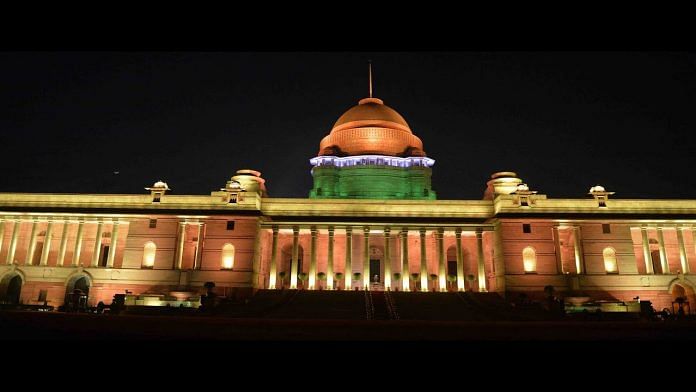
Thank you dear subscribers, we are overwhelmed with your response.
Your Turn is a unique section from ThePrint featuring points of view from its subscribers. If you are a subscriber, have a point of view, please send it to us. If not, do subscribe here: https://theprint.in/
From bands of nomads, with and without pack leaders, human civilization has seen various forms of leadership – chieftains, kings, emperors, fascists, communists, autocrats, dictators and finally democracy. Democracy can be safely termed as the most successful of the systems. Even with all the trouble spots in the world today, the post World War II era has been the least damaging of the systems to human life. But democracy is not a panacea for all ills in a society; neither are politicians and all sorts of governments.
Societies existed before the making of any form of rule, reign or government. It has always been societies that created politicians and governments of all types. Contrary to general beliefs, fissures and divergence in societies are not a creation of politicians.
Norms and structures in a society have been in existence much earlier than governments. Governments only bring in rules and laws to regulate societies. For instance, religion, caste, languages, cultural practices and such are not created by political dispensations. They have always been part of societies even before the politics of the day became real. For sure, in democracies, political dispensations exploit these existing divides in societies to gain and retain power. Politicians by their utterances attempt to channelise people’s feelings to take advantage of the existing differences.
This exploitation of feelings, if perpetuated, may sound the death knell of liberal democracy all over the world, especially in diverse India. Democracies should not be a puppet show where the people are controlled by emotional strings. Once the governance system is in place, which it has been in most nations for centuries/decades, neither the society has had much direct say in governments nor the governments are able to wholly control the society. It may seem a bit ironic; but these divergent forces, seemingly working at cross purposes, is what keeps a Nation together.
Thankfully we are safe; the society is the bulwark.
What happens is that politicians merely manipulate the voters appealing to sentiments to create a dedicated support base. This is all too evident in liberal democracies where a big dedicated voter base is a preserve of major political parties. For instance, in the USA there are only two major political parties and no regional outfits, the democrats and republicans each have a share of more than 40 per cent voters in their camps. Victory is decided by the 10 odd percentage swing votes. The divide is more pronounced in India, with innumerable political outfits of which a majority are confined to particular regions. As such, in India, political parties with even less than 35 per cent of popular votes from the Union government.
We then blame the politicians and the governments for dividing the already divided nation; and that is not all. We say the people are for or against the government in whatever they do as a reflection of the “feelings” syndrome.
This binary syndrome may be only a myth. The binary is a system in which information can be delivered to the backend, by combinations of the digits 0 and 1. It seems simple, but is a very powerful system that manages the whole computer world, including the internet, digitisation, automation, artificial intelligence and all the rest. Binary is for machines. It is preposterous to equate humans to machines. The jury is still out to determine which or who is better.
Be that as it may, as projected by a section of the media and suggested by some motivated posts on the social media platforms, all Indians are not really binary in thought and processing actions. They are not forever uniformly for or against chosen political dispensations or governments.
For sure the dedicated 60 per cent voters and 20 per cent who follow regional parties will root for their “benefactors” under all circumstances. Some of them — only some of them, mind you — dominate the social media and demonstrate physically. That is a relationship between the support base and the supported. The real democracy then is with the 20 per cent of fence sitters and the silent majority, as they say. It is they who decide the outcome of elections. They surely are not binary in their makeup.
We, today, probably need to discuss societal issues divorced from political influence. It is possible, if we encourage social engineering rather than political engineering. Political engineers are hired by parties to only win elections. Maybe social engineers will deliver better for politics and society. While in all democracies across the world people go out and vote, in India the electorate is expected to cast(e) their votes. This is but just one small aberration among a million transgressions — both by the society and the politicians they elect. We need to change this.
Lao Tzu said “All streams flow into the sea because it is lower than they are. Humility gives it its power. If you want to govern the people you must place yourself below them. If you want to lead the people, you must learn how to follow them”. This has to be achieved with social engineering led by the people – civil or uncivil.
Also read: SubscriberWrites: ‘Democracy 2.0’ — A new definition of democracy is needed in changing times
These pieces are being published as they have been received – they have not been edited/fact-checked by ThePrint.

COMMENTS